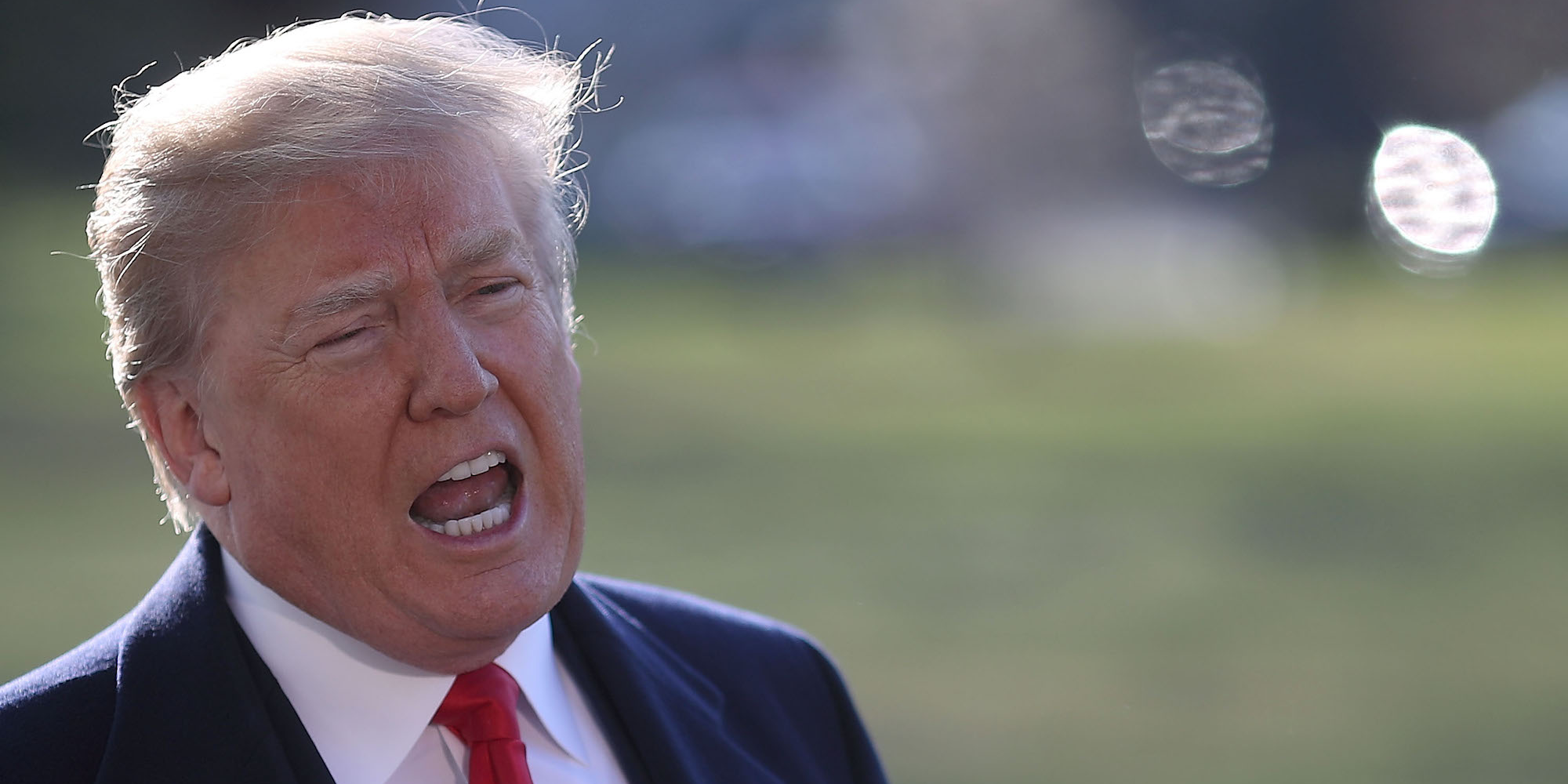- President Donald Trump defended his decision to congratulate Russian President Vladimir Putin on Tuesday for his lopsided victory in the country’s election last week.
- Trump said the “fake news media” was “crazed” over his comments because it wanted him to “excoriate” Putin, but added that getting along with Russia “is a good thing, not a bad thing.”
- The comment is the latest indication of the president’s unwillingness to confront Putin on Russia’s increasingly authoritarian image and aggression against the West.
President Donald Trump took to Twitter to publicly address blowback over his decision to congratulate Russian President Vladimir Putin during a phone call on his victory in the country’s election last week.
“I called President Putin of Russia to congratulate him on his election victory (in past, Obama called him also),” Trump tweeted Wednesday. “The Fake News Media is crazed because they wanted me to excoriate him. They are wrong! Getting along with Russia (and others) is a good thing, not a bad thing…….”
The White House said Tuesday that Trump limited conversation with Putin to “shared topics” on which the US and Russia could find common ground, like Ukraine, Syria, and North Korea. Trump said the call with Putin was “a very good call,” and he added that he would be meeting with the Russian leader “in the not-too-distant future.”
The Washington Post reported Tuesday evening that advisers included a warning in Trump’s briefing materials before the call, which said in all caps: “DO NOT CONGRATULATE” Putin on winning the Russian election last week.
They also instructed him to condemn Putin for the chemical attack on a former Russian spy in the UK, which both the US and UK said was ordered by the Kremlin.
It's unclear whether Trump viewed all of the briefing materials.
Trump apparently did not follow either suggestion. Nor did he press Putin on Russia's interference in the 2016 election.
On Sunday, Putin won more than 75% of the vote in Russia's presidential election, securing him at least another six years in power. There have been allegations of ballot-stuffing during the election, and election monitors were harassed and intimidated in the run-up to the vote.
Trump's decision to congratulate Putin on his victory prompted immediate criticism from lawmakers who are more hawkish toward Russia, like Arizona Sen. John McCain.
"An American president does not lead the free world by congratulating dictators on winning sham elections," he said in a statement.
"President Trump has insulted every Russian citizen who was denied the right to vote in a free and fair election to determine their country's future, including the countless Russian patriots who have risked so much to protest and resist Putin's regime," the statement continued.
Meanwhile, Trump's decision to ignore his advisers' guidance and congratulate Putin - and to later defend the move - adds another layer to an emerging portrait in which the US president has demonstrated a reluctance to confront the Russian leader amid an ongoing investigation into whether the Trump campaign colluded with Moscow to tilt the 2016 election in his favor.
Former CIA Director John Brennan told MSNBC Wednesday morning that he was baffled by Trump's unwillingness to push back against Putin.
"I think he's afraid of the president of Russia," Brennan said. "I think one can speculate as to why, that the Russians may have something on him personally that they could always roll out and make his life more difficult."
Brennan added that while it was important for the US and Russia to see improved relations, "the fact that he's had this fawning attitude toward Mr. Putin, has not said anything negative about him, continues to say to me that he has something to fear."
A White House official told Axios on Wednesday, "This is the way Trump is. If he's doing business with you or working with you in some way, he's going to congratulate you."
The official added that the notion that Trump is soft on Russia "is crap." At the same time, they said, "he doesn't want his personal relationship [with Putin] to be acrimonious," and that Trump needs to connect to Putin on a "personal, leader-to-leader level" to rebuild US-Russia relations.
Rob Price contributed to this report.

